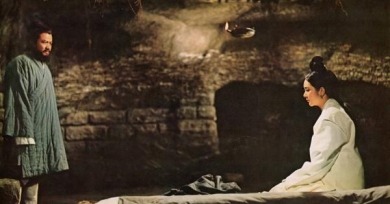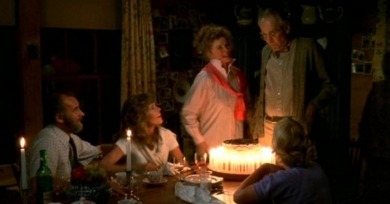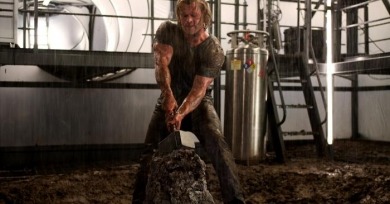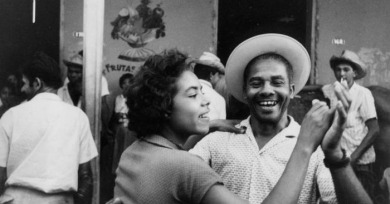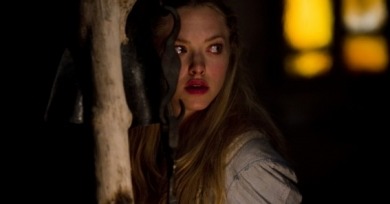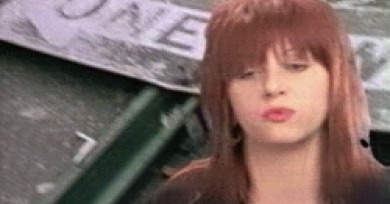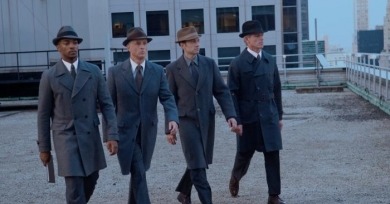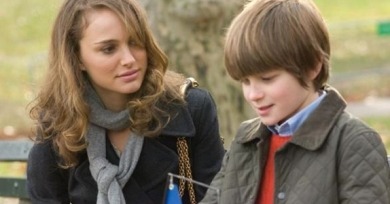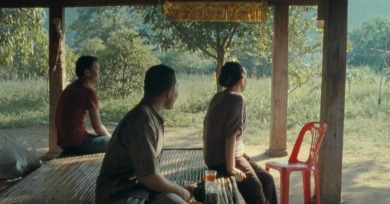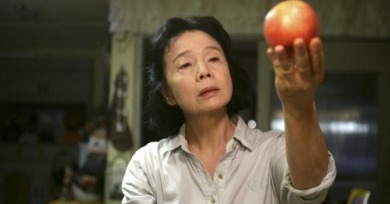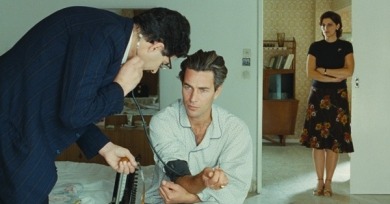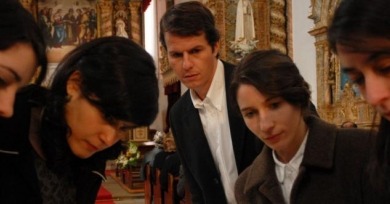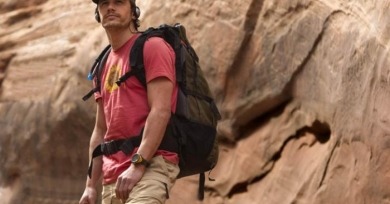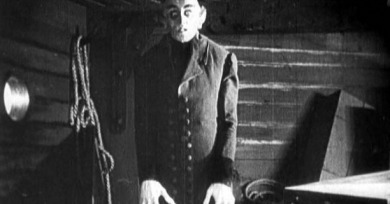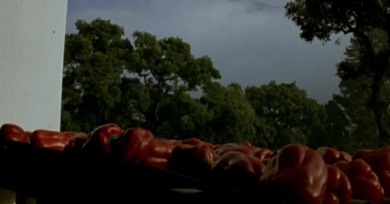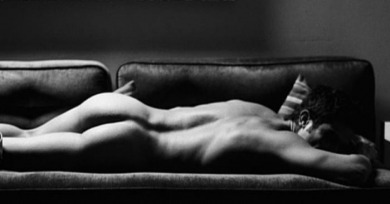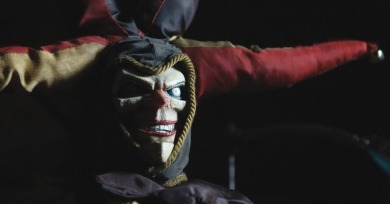Michael Koresky
Not knowing the film’s importance affected my viewing of Autumn Execution, which came across as a smoothly crass entertainment. It’s a prison drama, romance, and occasional fighting flick—and it would perhaps come across as wild if it didn’t feel so sedentary.
Rigid parents and their scornful offspring, both dealing with the pain of getting older yet lacking empathy for each other’s separate experiences, all of them facing the specter of disease—there’s no way this stuff should feel clean.
Stripped of his powers and biding his time in a tiny New Mexico town that looks like it consists of one dusty block, Hemsworth turns out to be a real stand-up guy, charming as he smashes coffee mugs with pleasure and grunts to the waitress for more drink.
Salut les cubains is neither masterwork nor grand failure; it’s too slight to be either. What it does do, which is valuable, is make visible the blind spots not only in her approach to political filmmaking but by association that of her French New Wave contemporaries.
It would be accurate enough to say that Red Riding Hood suggests a book report on Bruno Bettelheim’s landmark psychoanalytic study of fairy tales The Uses of Enchantment by a student who was pressed for time and just skimmed the Wikipedia page.
Surely the appeal of entering a theater completely blind to what is about to appear on the screen is one other cinephiles share with me—but it’s also one that is difficult to realize.
Too many Hollywood movies “loosely adapted” from Philip K. Dick stories (whether credited or not; Truman writer Andrew Niccol’s shameless swiping of Time Out of Joint comes to mind) water down the wigged-out, schizo futurist’s most radical ideas.
Don Roos’s The Other Woman promised to make for an appealingly middlebrow hour and a half in front of the tube (may I still call it that?), and which, in description, reminded me of all of those 1980s and early 1990s female-centric domestic dramedies studios used to churn out.
What should be mentioned first is the quiet. But when discussing Uncle Boonmee Who Can Recall His Past Lives many will undoubtedly initially gravitate towards the monkey ghosts, the talking catfish, the materializing spirits.
Poetry, a remarkable study of age, class, loneliness, responsibility, art, and the illusory nature of being, is not a film about the disease, nor, mercifully, is it a film that uses the disease as a device or even metaphor.
Structured in four parts, the self-identifying-Palestinian actor-director’s latest film, like his previous ones, straddles the line between sobriety and whimsy in its evocation of the absurdity of the contemporary Israel-Palestine reality—perhaps not without effort, but also not without a great degree of artistic success.
Don’t let the anecdotal nature of the now 102-year-old Portuguese auteur’s most recent films fool you, however. His rigor and precision—and canny sense of how to lull and then delightfully frustrate an audience—remain intact.
Never one to shy away from controversial subject matter or to give audiences an easy ride, Bruno Dumont willingly walks into an ideological minefield for his latest, Hadewijch.
Lee Chang-dong’s protracted yet endlessly involving tale of grief and regeneration is a classically tailored assemblage of small, clipped moments, prizing the intricacies of human behavior but also acknowledging it as remote and difficult to define.
In the opening minutes of 127 Hours, Danny Boyle’s adaptation of the based-on-a-true-story book by Aron Ralston, also known as the guy who cut his own arm off in order to free himself from a boulder, it seems the apparently ADD-afflicted filmmaker has found the perfect set-up for his hectic aesthetic.
Nosferatu, The House of the Devil, My Dinner with Andre, The Thing, The X-Files: "Home," Empire of Passion, Rosemary’s Baby
We asked our writers to pick a contemporary filmmaker from a Latin American country who they’d like to champion; this could trigger a longer discussion about an oeuvre or an idea on a national cinema, or it could remain a close reading of a film itself.
Like all of his films, it’s a work of major excavation, only in some ways more literal: setting the groundwork for the film’s many narrative and philosophical threads is its portrait of the Atacama desert, its past and present, its sky and earth, its technological and historical resonances.
Not only does he acknowledge gay men’s longing and desire, he makes it explicit by eroticizing both their gaze and ours—statuesque, youthful, darker-skinned bodies moving alluringly through time and space.
A clunky, rattling toy chest of tired horror tropes, The Hole will nevertheless win over the Gremlins and Matinee mastermind’s devoted fans (I’m looking at you, Jonathan Rosenbaum!), and maybe a few brave tots in the bargain.
